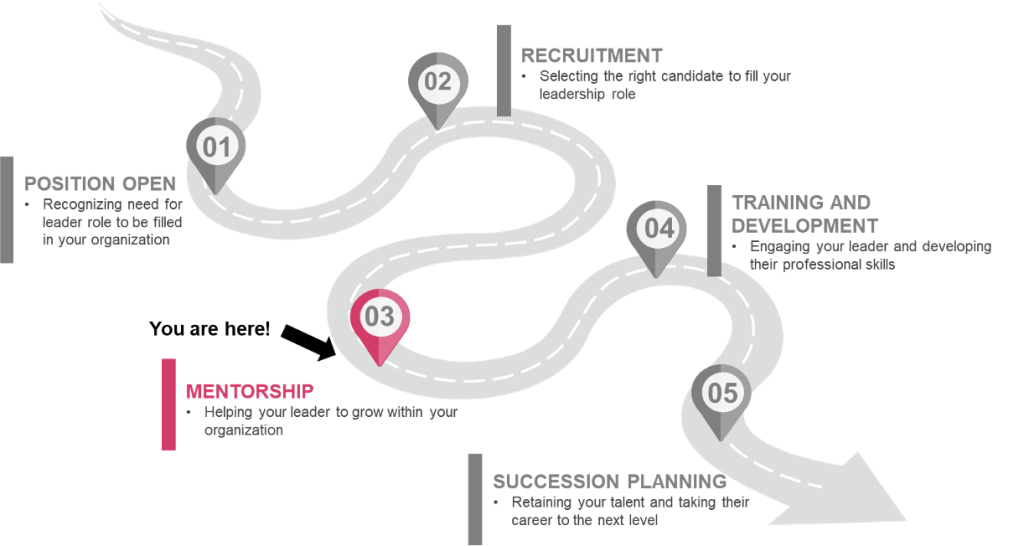1.3 Sponsorship and Mentorship
As board members and leaders of the organization, it is important to consider the role you play in equitably sponsoring and mentoring potential board candidates.
A sponsor is someone who talks about you in decision-making spaces and advocates for you using their own professional capital to help progress your career forward. Implementing formal mentorship and sponsorship programs enhances employee engagement and retention, improves employee performance, and promotes a culture of talent recognition and support.
As board members you can take the following actions within your organization:
- Support the implementation of a formal sponsorship program, where managers and above are paired with employees from the five priority groups
- Get board members committed to sponsoring and mentoring board candidates from the five priority groups, with the goal to recruit them to the board
- Enable and support the success of potential board candidates from the five priority groups
- For example: Pair yourself with a high potential board candidate and sponsor them when they apply for a board position
- For example: Help and encourage new board members where you can, such as with board meeting preparation and sharing their points of view
As leaders, you can take the following actions within your organization:
- Implement a formal sponsorship program, where managers and above are paired with employees from the five priority groups
- Get managers on board and committed to mentoring employees from the five priority groups by highlighting benefits to both them and the organization
- Advise mentors to encourage employees from the five priority groups to apply for leadership positions or promotions as they are less likely to do so
- Promote the skills, talents, and ability of the individual you are sponsoring, and help them work through mistakes
- Reach in at key moments and encourage, even nudge, towards the next role

